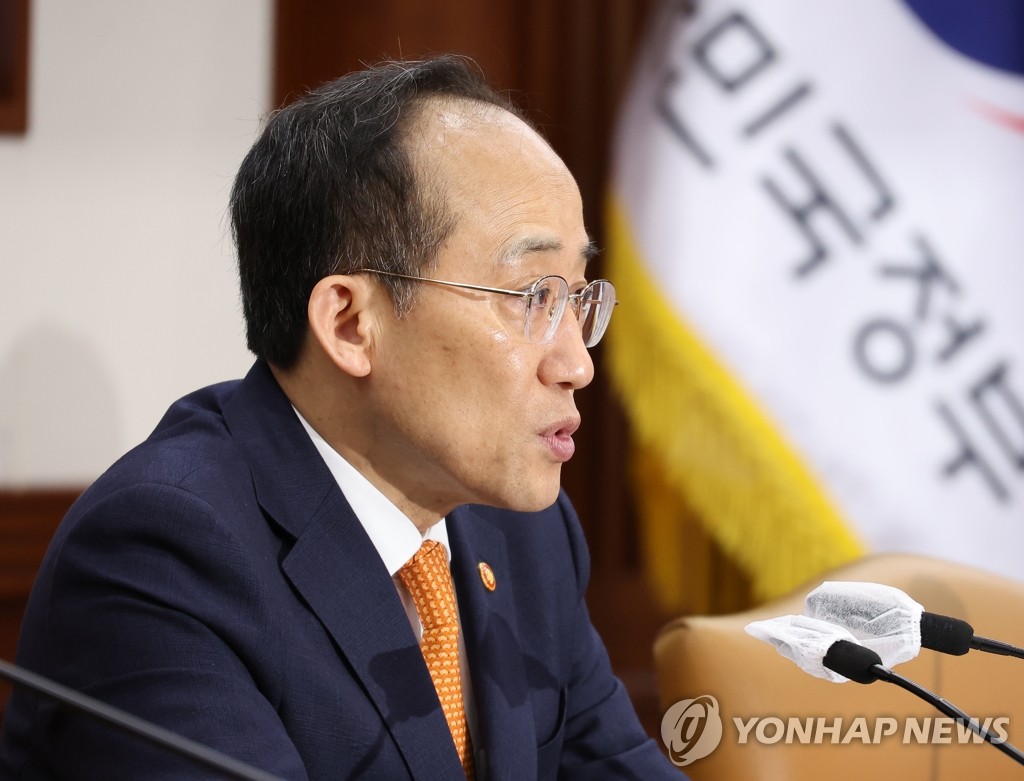- California Assembly OKs highest minimum wage in nation
- S. Korea unveils first graphic cigarette warnings
- US joins with South Korea, Japan in bid to deter North Korea
- LPGA golfer Chun In-gee finally back in action
- S. Korea won’t be top seed in final World Cup qualification round
- US men’s soccer misses 2nd straight Olympics
- US back on track in qualifying with 4-0 win over Guatemala
- High-intensity workout injuries spawn cottage industry
- CDC expands range of Zika mosquitoes into parts of Northeast
- Who knew? ‘The Walking Dead’ is helping families connect
S. Korea to diversify trade partnerships, portfolio amid uncertainties: finance minister
South Korea will diversify its free trade partnerships with more nations to address the growing economic uncertainties and jitters in the global supply chain, the finance minister said Wednesday.
Finance Minister Choo Kyung-ho made the remark ahead of a closed-door meeting, where economy-related ministers discussed various issues, including expanding free trade deals and coping with protectionism from major countries, according to the Ministry of Economy and Finance.
“Recently, the global economy and the financial market have been facing volatility and uncertainty following aggressive monetary-tightening moves in major economies,” Choo said, pointing out that the prolonged Russo-Ukrainian war also is weighing on Asia’s No. 4 economy.
South Korea’s exports fell for the sixth consecutive month in March due mainly to weak global demand for semiconductors amid an economic slowdown, with the country suffering a trade deficit for 13 months in a row.
To revitalize slowing exports, Choo said the country will continue efforts to diversify its trade portfolio and speed up free trade negotiations, including those with Ecuador and the Gulf Cooperation Council (GCC).
South Korea held its seventh round of negotiation with the GCC, consisting of six nations — the United Arab Emirates, Bahrain, Saudi Arabia, Oman, Qatar, and Kuwait — in February.
The country will also seek economic partnership agreements with developing countries, such as Mongolia and Georgia, he added.
Concerning key trade partners’ protectionism policies, such as the U.S. Inflation Reduction Act (IRA) and the EU Carbon Border Adjustment Mechanism (CBAM), Choo said South Korea will continue talks with counterparts to maximize the interests of local businesses.
The government will also help South Korean firms develop carbon-reduction technologies and utilize the new EU policy as an opportunity, Choo said.












